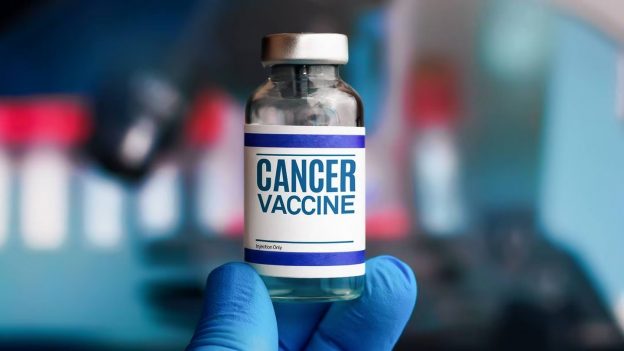In recent years, significant breakthroughs in oncology have illuminated a novel approach to treating cancers associated with KRAS mutations, such as pancreatic and colorectal cancers. A new therapeutic vaccine called ELI-002 2P, developed by Elicio Therapeutics, has shown remarkable potential in activating the immune system to combat these challenging cancers.
Understanding KRAS Mutations
KRAS mutations are present in approximately 25% of all solid tumors, making them one of the most common drivers of cancer growth. They are particularly prevalent in pancreatic cancer, with about 90% of cases affected, and in roughly 50% of colorectal cancers. Historically, these mutations have posed a significant challenge for conventional therapies, highlighting the importance of developing targeted vaccines.
How ELI-002 2P Works ?
The ELI-002 2P vaccine employs a unique strategy by utilizing synthetic peptide antigens that mimic the KRAS mutations frequently found in these cancers. Here’s a breakdown of how it operates:
1. Targeting the Immune System: The vaccine is designed to stimulate the immune system to recognize and attack cancer cells that carry KRAS mutations.
2. Delivery Mechanism: It is chemically engineered to bind to albumin in the bloodstream, allowing it to travel directly to lymph nodes, where immune responses are activated.
3. Activating T Cells: The vaccine primes both CD4+ helper T cells and CD8+ killer T cells, equipping the immune system to effectively target and destroy cancer cells.
Clinical Trial Results
The results from the AMPLIFY-201 Phase 1 trial are particularly encouraging. This trial involved 25 patients—20 with pancreatic cancer and 5 with colorectal cancer—who had undergone surgery and standard treatment but still showed minimal residual disease. The trial reported the following outcomes:
– Relapse-Free Survival: An average of 16.3 months, significantly improving outcomes for this high-risk group.
– Overall Survival: An average of 28.9 months, exceeding historical data.
– T Cell Responses: 84% of patients developed KRAS-specific T cell responses, while 71% exhibited both helper and killer T cell responses.
– Complete Clearance: Six patients achieved complete clearance of circulating tumor DNA, indicating a significant reduction in residual cancer.
Additionally, the vaccine demonstrated an intriguing phenomenon known as “antigen spreading,” where the immune system began to recognize and attack tumor mutations not included in the vaccine formulation itself. This was observed in two-thirds of the patients, suggesting a broader immune recognition beyond just KRAS.
Looking Ahead
The AMPLIFY-201 trial results represent a significant advancement in cancer vaccine research, and a randomized Phase 2 trial is already underway to test an expanded formulation that includes additional KRAS and NRAS peptides. If successful, this vaccine could provide a standardized treatment option that is readily accessible to patients, especially in urgent care situations.
In conclusion, the development of the ELI-002 2P vaccine marks an exciting milestone in the fight against KRAS-driven cancers. This innovative approach could usher in a new era in cancer treatment, where vaccines play a crucial role in harnessing the body’s immune system to combat cancer effectively. As we continue to observe these developments, we move closer to the hope of more effective and lasting treatments for patients facing challenging cancer diagnoses.
